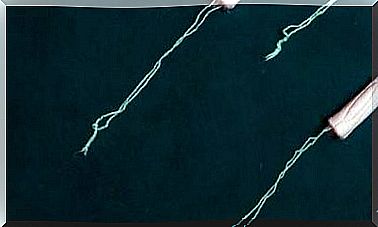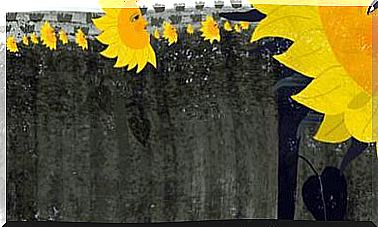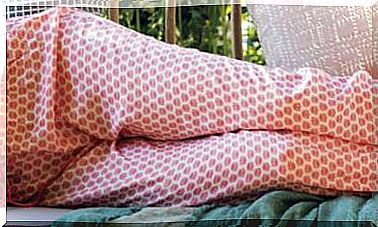10 Steps To Definitively Get Rid Of Stress
Stress sometimes acts as a clothing that accompanies us in our passage through this world. Perceiving the attitudes, habits and supposed advantages it brings is the best way to get rid of it.

Stress can be seen as a habit or an attitude towards life, and like any habit it can change and transform. Experience shows that changing a behavior habit takes about three weeks of practice and dedication.
Stress occurs when the demands on the body (physically, mentally, or emotionally) are greater than it can handle. From this it can be deduced that stress is essentially a natural, bodily and mental response to a demanding situation.
To really overcome stress, the most important thing is not to feed the habits and attitudes that lead to it. The following list of steps ranges from the most basic exercise to the most refined. They can be approached as a daily practice that deepens over the years. The basic objective is to stop identifying with stress, that is, to make that attitude stop being something habitual to become punctual or exceptional.
1. Don’t choose to be a stressed person
To begin with, it is important to recognize why one begins to get used to the mental attitude that generates stress. What’s the use of living like this? Does one feel more alive, more interesting? Is the feeling of continuous action pleasant? Does balanced life seem boring? Perhaps stress is used to excuse some aspect of yourself that you do not want to face?
These are complex questions, but they are important to be able to explore, discover and therefore heal the origin of stress addiction.
2. Do you really want to transform that attitude?
Once you are clear about what reason or what need is covered or covered up with stress, you have to honestly ask yourself if you are ready to transform that habit and make the necessary modifications – at the nutritional, professional, family, social level … to make it.
This step is important, because it is the one that allows you to start the path from the passion of wanting to transform your attitude and not because “it is necessary” or there is no other remedy.
3. Question certain values
After honestly answering the first two questions, it’s time to explore other ways of thinking and reacting to life’s challenges. Isn’t it true that opinions change from time to time during life? That is, one is convinced that “this is so”, until someone with a different point of view appears and the approach that seemed immovable stops being so. The same can happen with the attitude towards life.
From time to time questioning one’s own values and even one’s own identity – personal, social, national … – can help to see which opinions and emotions depend on a point of view. By recognizing that certain values that we consider crucial are something that is chosen at some point and then mentally repeated, you take responsibility for your thoughts and for what is considered important or superfluous.
This practice also makes the mind more flexible to see any incident with a broader perspective, and opens the door to new ways of thinking, speaking and acting.
4. Live slowly and consciously
If all things are done at a 10% slower pace (eating, walking, talking, thinking …) space is created not only between one action and another, but also between thoughts.
Often you do one thing thinking only of finishing it and being able to start the next. This way of living does not allow to take advantage of the opportunity to fully enjoy each action.
The important thing is that by doing everything more slowly, you stop sending a signal of danger or stress to the body (making it believe that it is urgent to do everything now, instantly) and the message is transmitted, more serene, that the situation is safe, reliable, solid, quiet.
In this way the body feels protected, relaxes and softens instead of contracting. Through this practice, the sympathetic nervous system is deactivated and the parasympathetic one is activated. Each step is also more enjoyable.
In fact, one of the best remedies for stress is joy, enjoyment, which develops through a playful attitude towards life. Joy is born spontaneously when we give ourselves the go-ahead to do things at our natural pace. But it is often forced to feel more productive.
5. Listen to your internal dialogue
What the mind says is very important. Every thought or word, expressed or not, has a real effect on the body, even on a mechanical (body posture, for example) and chemical level. That is why it is useful to keep an eye on what you say to yourself throughout the day.
Simply listening to what your mind is saying can help you change your attitude. Often the internal dialogue sounds something like: “what a fool I am”, “I have to do X, Y or Z and I don’t have time”, “I should have said or done this”, “nobody understands / appreciates me / wants “,” I’m alone “,” I can’t trust anyone “,” life is hard “,” I don’t enjoy anything “,” I don’t have what I want “,” I don’t like what I have ” , “I can’t stand that person” … Or even seemingly innocent phrases like: “heat / cold kills me” or “I’m dying of …”.
Statements of this type cause a feeling of overwhelm and contraction not only emotionally, but also muscular and respiratory. But there is no reason to believe everything the mind says or repeat it every day. In the market, for example, you look at and smell the fruit before you pay for it.
Something similar can be done with thoughts. You can choose to view your thoughts solely as an invitation; You can decide to listen to them or you can say, politely but firmly: “not now; thank you”, and let them go to make way for others of a more constructive nature.
6. Move with more awareness
The mental attitude manifests itself in the body. Painful emotions linked to tension and stress stagnate in the form of stiffness and harshness. When being anxious before some situation or person, the organism can interpret it as a danger; the muscle tone of the shoulder girdle is then increased in order to be ready for a possible fight or flight reaction. If that state of alertness is continuous, the muscles suffer.
In Chinese medicine, any stagnation is considered to mean pain. This is why it is essential to move the energy physically. Walking, dancing, or yoga are good options. You can choose something that is not competitive, that is practiced in a friendly environment, and that also addresses the psycho-emotional plane.
Something not recommended is to exercise with machines and watch television or read a magazine while exercising – it would be like making love and watching the news at the same time. If you are already dedicating time to the body, it is more fruitful to do it with full awareness and love; the exercises will be even more effective and the enjoyment is likely to be greater.
7. Eat a smart diet
It is essential for the health of the body and the psyche to eat in a balanced way and as natural as possible. But it is not only the quality of the food that counts: it is also important to eat the food in a way that the food is a source of enjoyment and not stress.
It helps to remember that the stomach “has no teeth” and that we need to chew well to facilitate digestion. Eating in a calm, appreciative and joyful way is healthy and satisfying. Eliminating unnecessary stimulants (tobacco, alcohol, coffee) has been shown to reduce stress.
8. Set limits to control
The stressed attitude is often caused by wanting to control every aspect of life. You want to control not only what and how things are done, but also the results. It is thought that everything depends on willpower and hard work.
But, in fact, one can also plant the seed, water it and hope for the best. Nobody has control of how the fruits of the tree develop or what people think of them. When someone really explores the limits of their control over the events in their life, they discover that they only have control over what they think and, to some extent, what they feel. Although it may seem little, both things already carry a lot of responsibility.
9. Love in an existential and expansive way
Romantic love is a blessing when it is present, but it is not the only way to love. There are many types of love, such as love for the human being in general, for nature, for an inspiring philosophy, for the people around us and even for difficulties, seen as opportunities to grow and wake up.
There is also love towards one’s own body as it is – with its limitations and its contractions – because this is its way of manifesting itself and no other. Since everything is continuously in a process of transformation, the body can also allow itself to enjoy its present manifestation, because we know that later it will change its form and behavior patterns.
You can choose to love every aspect of life, even if it doesn’t seem to meet your expectations. Many of us believe that we do not have enough time, money, success or love, as if something is always missing to be complete. It can be helpful to consider whether we really lack that much or perhaps want too much.
A person can also be accepted not from love but from commitment, because “it is what it is”. In that case, you may be left with the concern of not being able to change the conflict situation due to a matter of impotence. Acceptance can be an aspect of love, but one can also accept without loving.
Love carries and is accompanied by deep dedication and enthusiasm that provide gratitude and joy. The practice of love is the most powerful and most transformative practice that exists; it is like a spiral that never stops growing and expanding. It gives meaning to life and fills it with joy, or rather, with bliss.
10. Keep evolving
The process of relaxation is a continuous practice for a lifetime, not a goal that is achieved and whose results always remain. Recognizing that we live in a society that favors the attitude of living quickly and with stress is a first step.
Then you have to go on to follow different behavior guidelines, which expand and make the mind more flexible, to help it disidentify with what causes an attitude of stress. This allows you to enjoy the present experience with a calmer attitude.
Our ability to choose
If these steps toward tranquility seem difficult, I would remind you that living under stress is more difficult, and even dangerous, as it consolidates impatience, restlessness, nervousness, or chronic dissatisfaction. The choice of how to see and live life, how to think and act, depends only on each person and their daily decisions. We can choose to enjoy and harness that magnificent power, cultivating an attitude towards life that fills it with health and happiness.








